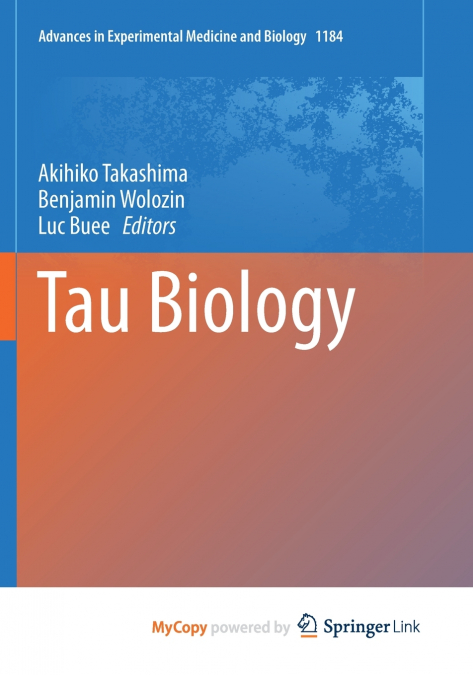
This book presents essential studies and cutting-edge research results on tau, which is attracting increasing interest as a target for the treatment of Alzheimer’s disease. Tau is well known as a microtubule-associated protein that is predominantly localized in the axons of neurons. In various forms of brain disease, neuronal loss occurs, with deposition of hyperphosphorylated tau in the remaining neurons. Important questions remain regarding the way in which tau forms hyperphosphorylated and fibrillar deposits in neurons, and whether tau aggregation represents the toxic pathway leading to neuronal death. With the help of new technologies, researchers are now solving these long-standing questions. In this book, readers will find the latest expert knowledge on all aspects of tau biology, including the structure and role of the tau molecule, tau localization and function, the pathology, drivers, and markers of tauopathies, tau aggregation, and treatments targeting tau. Tau Biology will be an invaluable source of information and fresh ideas for those involved in the development of more effective therapies and for all who seek a better understanding of the biology of the aging brain.